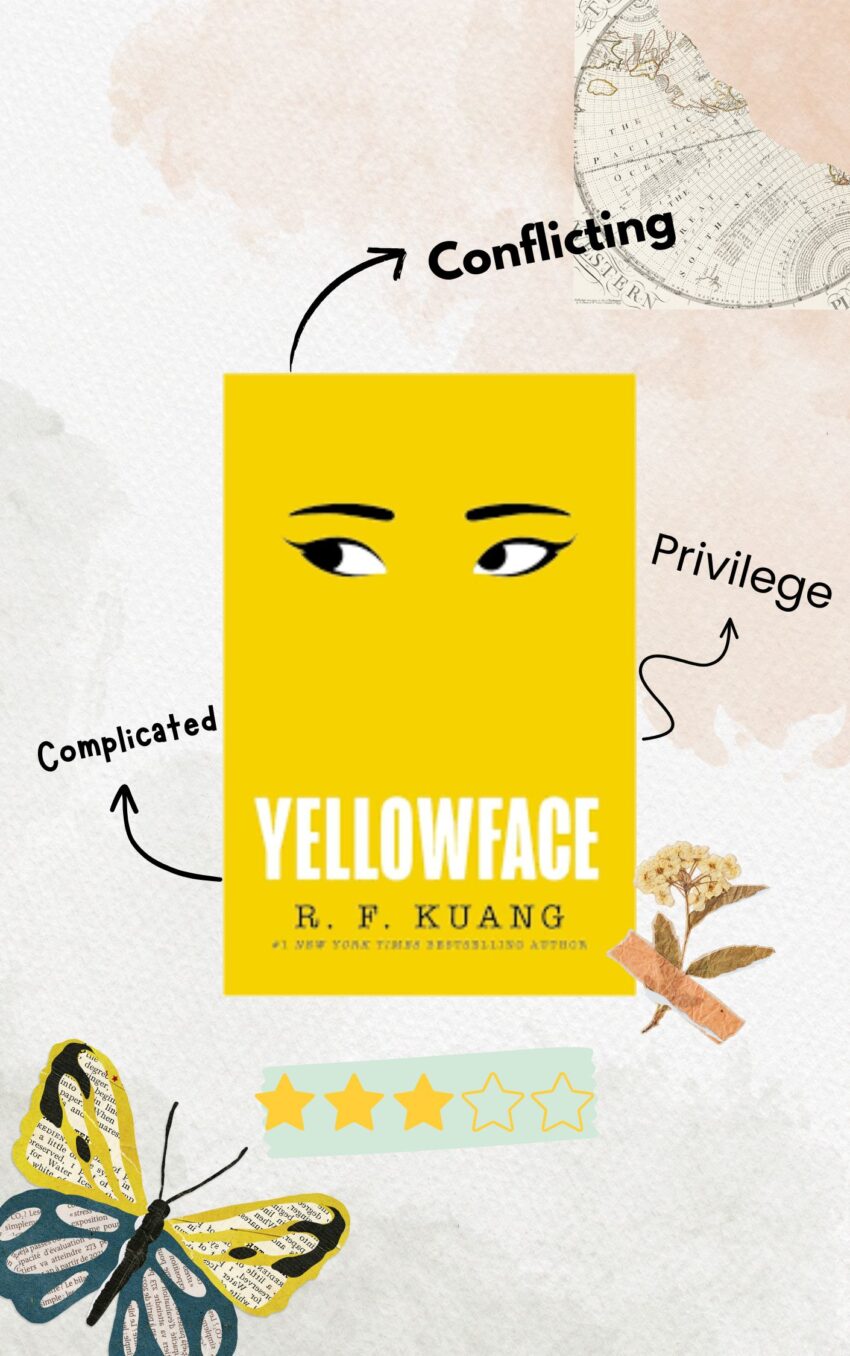Before we start i’d like to let you know that I started my journey with this book when I was in Vancouver, BC during a long layover so you could just imagine how i look like all confused, puzzled, and in awe, and at the same time I hated that I have to look at the clock every now and then to make sure i wasn’t left by my plane. And Yes, it requires 100% focus and attention because I felt like I would miss a whole lot of information with just one missed word. I don’t know if its an R.F. Kuang type of thing since this is my first time reading her book, but geez, I can’t even tell you if its good or bad, either or neither.
The story follows June Hayward, a struggling writer who steals the manuscript of Athena Liu, a Chinese-American author who tragically dies, and passes it off as her own. What starts off as a desperate grab for success turns into a tense narrative about guilt, ambition, and the cost of fame. Kuang’s writing is sharp and to the point, making it clear from the start that the book is not just a thriller, but a deep dive into the complexities of race and privilege in the literary world.
[ Get your Paperback copy here ]
One of the strongest aspects of Yellowface is how Kuang doesn’t shy away from addressing the issue of cultural appropriation. June’s theft isn’t just about her desire to make it as a writer; it’s also a commentary on how the literary world often elevates white voices over those of marginalized groups. As June tries to pass off Athena’s work as her own, Kuang shows the ugly side of the publishing industry, where the stories of people of color are often co-opted for profit, while the original voices are pushed aside. This exploration of systemic racial dynamics gives the novel a sharp edge that resonates well beyond its plot.
June, as a character, is frustrating in all the right ways. She’s not outright evil, but she makes a series of morally questionable choices that make it hard to sympathize with her. Kuang really nails the internal conflict June feels—she justifies her actions to herself over and over, convincing herself that she deserves the recognition Athena would have gotten. It’s this psychological depth that makes the book so interesting. Watching June spiral into her own lies and struggles to keep up the ruse is both captivating and unsettling.
The pacing of Yellowface is another thing that makes it so compelling. The plot keeps moving, and there’s always something around the corner that makes you want to keep reading. Kuang mixes moments of fast action with quieter, more introspective passages, which keeps the reader engaged. You can feel the tension building as June’s deception becomes harder to maintain, and just when you think things can’t get worse, they do. The twists and turns in the story aren’t just there for shock value—they serve to reveal more about June’s character and her unraveling.
What really stands out about Yellowface is how well it mixes a thrilling plot with important social commentary. Kuang manages to hold a mirror up to the publishing world, while also giving us a gripping psychological drama. It’s a novel that forces you to think about the broader implications of June’s actions, while also getting lost in the drama of her personal downfall. If you’re looking for a book that’s both entertaining and thought-provoking, Yellowface definitely delivers.
